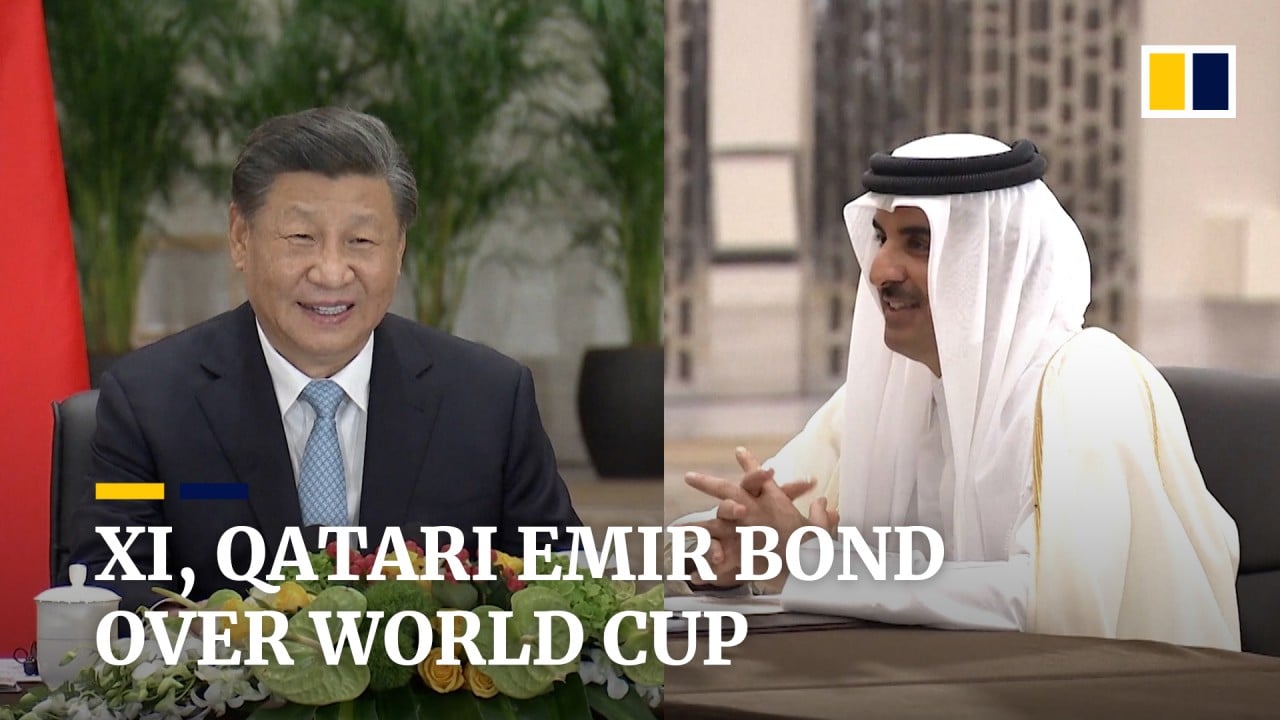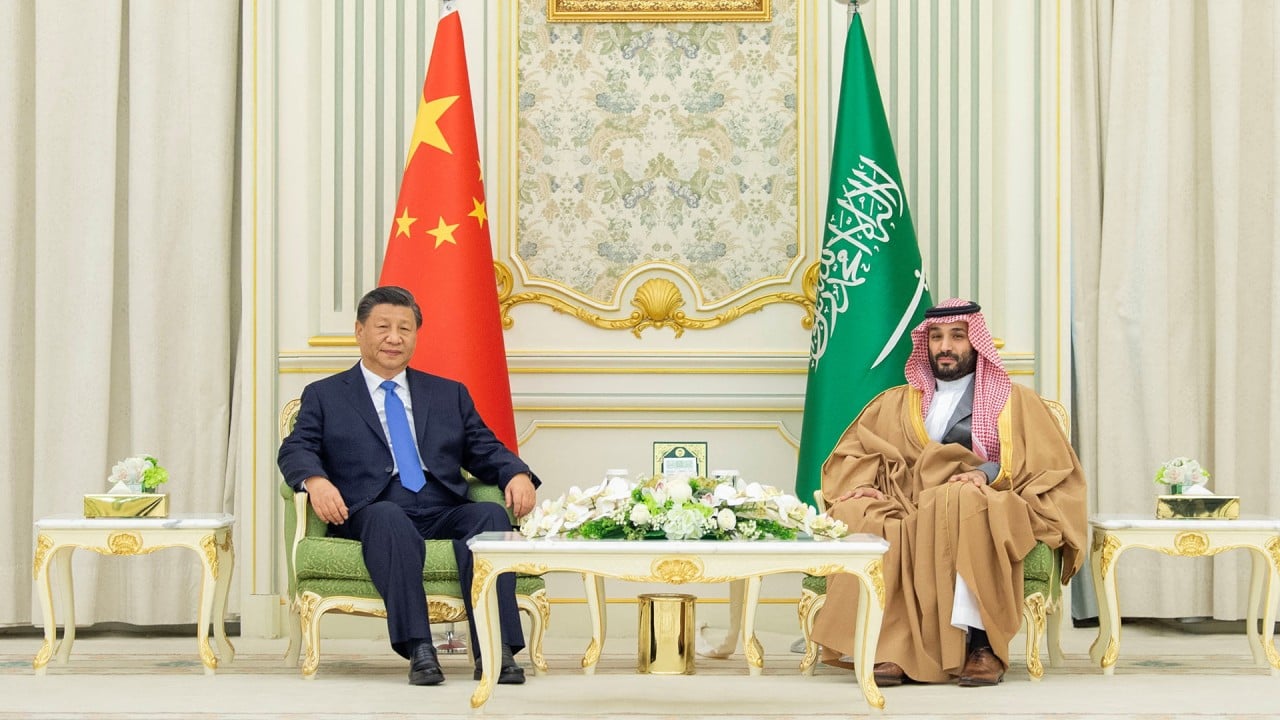
China pushes to boost role of yuan in global energy markets as Xi Jinping wraps up Saudi Arabia visit
- The Chinese leader promotes the use of the currency – a move that could challenge the US dollar’s dominance – during a series of summits with Arab states
- Beijing has also pledged more than US$700 million in development aid and involvement in China’s space programme as part of a drive to increase influence in the region
As part of the visit, Xi attended two summits on Friday – one a gathering of the six-member Gulf Cooperation Council (GCC) and the other a broader China-Arab leaders’ meeting.
The summits, held amid growing friction between the United States and Saudi Arabia over oil production and human rights, saw both sides vowing to strengthen “solidarity” and “refraining from using or threatening to use force in international relations”.
A joint statement released after the China-Arab summit stressed the need to avoid “excluding major energy sources”, which could have an impact on developing countries.
China looks to strengthen Arab ties as US pivots from Middle East
But Xi told the Gulf summit that there should be a new paradigm for energy cooperation, and tried to boost the role of the yuan as a currency for trading in oil and gas – a move that could weaken the global dominance of the US dollar if successful.
“China will continue to import large quantities of crude oil on a long-term basis from GCC countries, and purchase more LNG,” he said. “The Shanghai Petroleum and Natural Gas Exchange platform will be fully utilised for yuan settlement in oil and gas trading.”
Xi also offered 5 billion yuan (US$718 million) of development aid to Arab nations, to grant duty free access to the least-developed nations in the region, send 500 agriculture experts to the region to boost food production and step up military and security exchanges, according to the Chinese foreign ministry.
China and the Gulf states also agreed to establish a joint forum on the use of nuclear technology, with China providing training, and to increase aerospace cooperation in areas such as remote sensing and communication satellites.
Xi also offered a role in China’s space programme saying “China welcomes GCC astronauts to its space station for joint missions and space science experiments”, adding that he would consider establishing a China-GCC joint centre for lunar and deep space exploration.
Why is Saudi Arabia looking to China to buy weapons?
Saudi Arabia gave a lavish reception to Xi, who was making his first four-day visit to the kingdom since 2016. Four fighter jets from the Royal Saudi Air Force escorted Xi’s plane as it entered the kingdom’s airspace on Wednesday, and Xi’s meeting with Saudi Crown Prince Mohammed bin Salman resulted in a pledge to widen their cooperation to “all fields”, including technology, security and Iran.
Beijing also secured support for its stance on Taiwan and other sensitive topics, with a joint statement from the China-Arab states summit rejecting Taiwanese independence and pledging support for Beijing’s efforts to maintain national security in Hong Kong.
It also expressed appreciation for “the important efforts made to care for minorities on both the Arab and Chinese sides” – a veiled reference to Western criticisms of China’s treatment of the Uygurs and members of other Muslim minorities in Xinjiang.
“The Chinese side affirmed its support for Arab countries to solve security issues in the region through solidarity and cooperation, and its support for the Arab peoples to explore their own development paths with their independent will,” the statement said.



